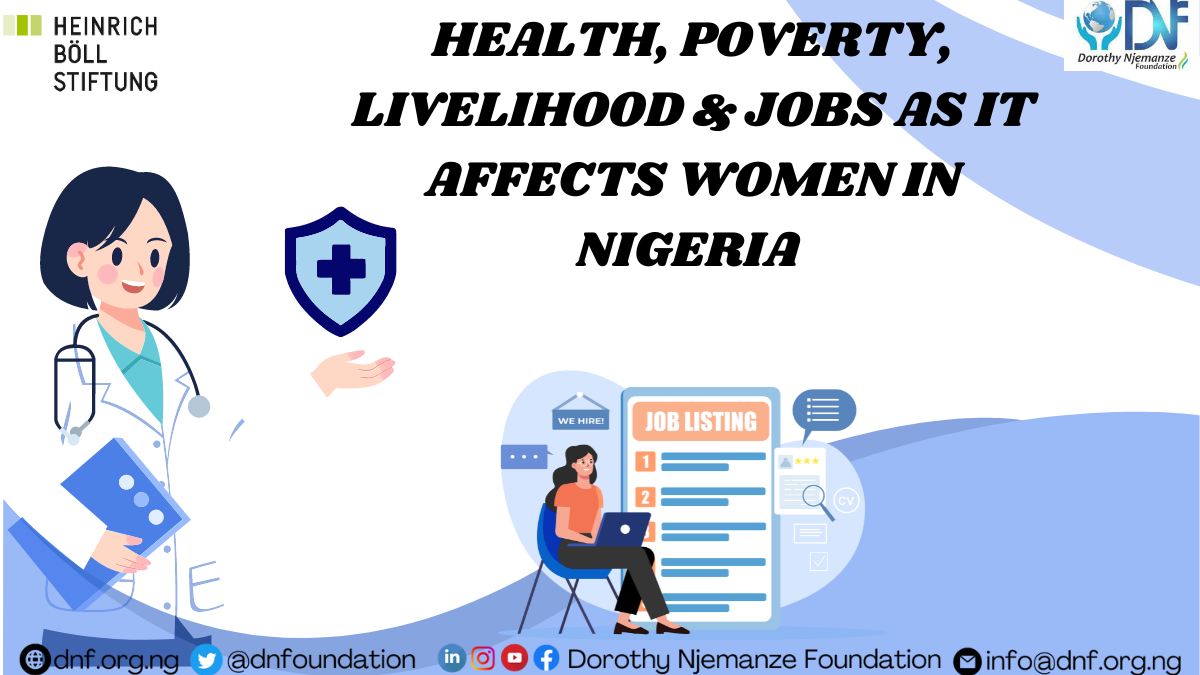In today’s world, certain necessities are essential for survival. These include good health, secure employment, safe housing, and financial security. These are what some would refer to as the “basic necessities.”
However, for many Nigerian women, achieving these essentials can feel like navigating a labyrinth. Despite Nigeria’s vibrant markets, bustling cities, and rich cultural heritage, societal barriers often make success a much steeper climb for women than men.
From biased hiring to unequal pay and discriminatory housing, Nigerian women face hurdles at every turn. Landing a desired job is tough, promotions are scarce, marriage further complicates careers and some women are stuck in a poverty cycle. It feels like the battle is never-ending.
Why is this happening? Because current policies often neglect or overlook the unique challenges women face. Here’s why feminist policy is crucial to dismantling these barriers and unlocking the full potential of women.
Consider health. Women prioritize family care, often delaying their own health needs. Pregnant women in rural areas might have to travel for miles to access basic prenatal care, a burden we can fix with accessible healthcare specifically designed for women’s needs.
Non-govermental organizations (NGOs) like Women in Global Health Nigeria advocate for accessible healthcare specifically designed for women’s needs, ensuring initiatives like the National Health Insurance Scheme effectively reach women in rural areas. Other NGOs like the Dorothy Njemanze Foundation are first responders to sexual and Gender-based violence, aiding women through their plight and finding them a safe space. However, more can be done by the governmental associations.
When it comes to economic empowerment, the backbone of Nigeria’s informal sector is often women.
They are entrepreneurs, traders, and the driving force behind countless businesses. Yet, lack of access to capital, skills training, and job opportunities restricts their growth.
According to the Statista report by Dorris Dokua Sasu; in 2023, the employed male population in Nigeria was estimated at nearly 40 million, while the number of employed females was projected to be slightly lower, at around 31.3 million, even though according to Nigeria’s demographics, the country has more women than men in the working age bracket (15-65).
Feminist policy focuses on building bridges, not walls. It goes beyond giving women annual microloans and pushes for reforms that guarantee women equal access to things such as land ownership, a crucial step often overlooked by initiatives like the National Land Use Act.
One crucial step to breaking the poverty cycle is to address the gender pay gap. By initiating open conversations about this issue, we can advocate for policies that promote equal pay for equal work. Additionally, salary transparency laws can help expose and rectify existing inequalities.
Financial literacy programs play a vital role in empowering women to achieve economic security. These programs equip women, particularly those from low-income backgrounds, with the knowledge and skills to make informed decisions about budgeting, saving, and managing credit. This financial empowerment allows them to build a stronger foundation for themselves and their families.
We ought to use education as a weapon. Girls’ education is a powerful tool for breaking the poverty cycle. NGOs like Plan International Nigeria work tirelessly to address the barriers girls face in accessing education. Feminist policy complements this by advocating for reforms that address issues like child marriage and promote girl-child education in rural communities.
Why is this important? Investing in women isn’t just about social justice or charity, it’s about economic prosperity. Studies show that empowered women have a multiplier effect – contributing more to the economy and raising healthier, better-educated children.
A 2011 report by the World Bank emphasizes that women’s economic empowerment is “smart economics.” They found that increased female labour force participation can boost GDP growth significantly.
Also, UN Women states in Facts and Figures, that women tend to reinvest a higher proportion of their income back into their families and communities, leading to better health, education, and overall well-being.
We need feminist policy-making that reflects the realities of women’s lives. Imagine a future where women have a seat at the table, shaping policies that address their specific needs. By advocating for feminist policy, we can build bridges of opportunity for all Nigerian women, fighting systemic inequality and paving the way for a more inclusive and prosperous future for the entire nation. Let us build these bridges together. Join the movement! Advocate for feminist policies in your community. Support organisations working towards women’s empowerment. Let us ensure every woman in Nigeria has the chance to thrive.
Nengi Diri writes in from Lagos Island, Lagos State.
This opinion article is published in Partnership with the Dorothy Njemanze Foundation as part of its Improving Feminist Leadership Policy in Nigeria project funded by Heinrich-Böll-Stiftung to contribute to a more informed, engaging, and collaborative approach to feminist leadership policymaking in Nigeria by leveraging diverse perspectives, resources, and coalition building to address and bridge existing policy gender gaps and actions.
NB: Opinions expressed in this article are strictly attributable to the author, Nengi Diri, and as it relates to the project stated above.

Leave feedback about this